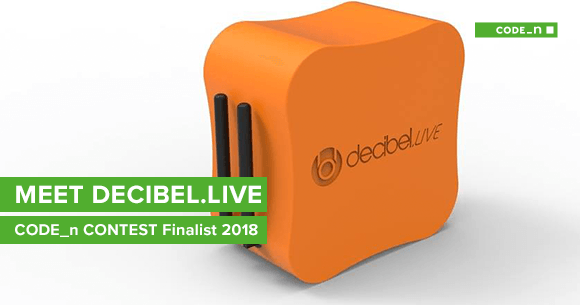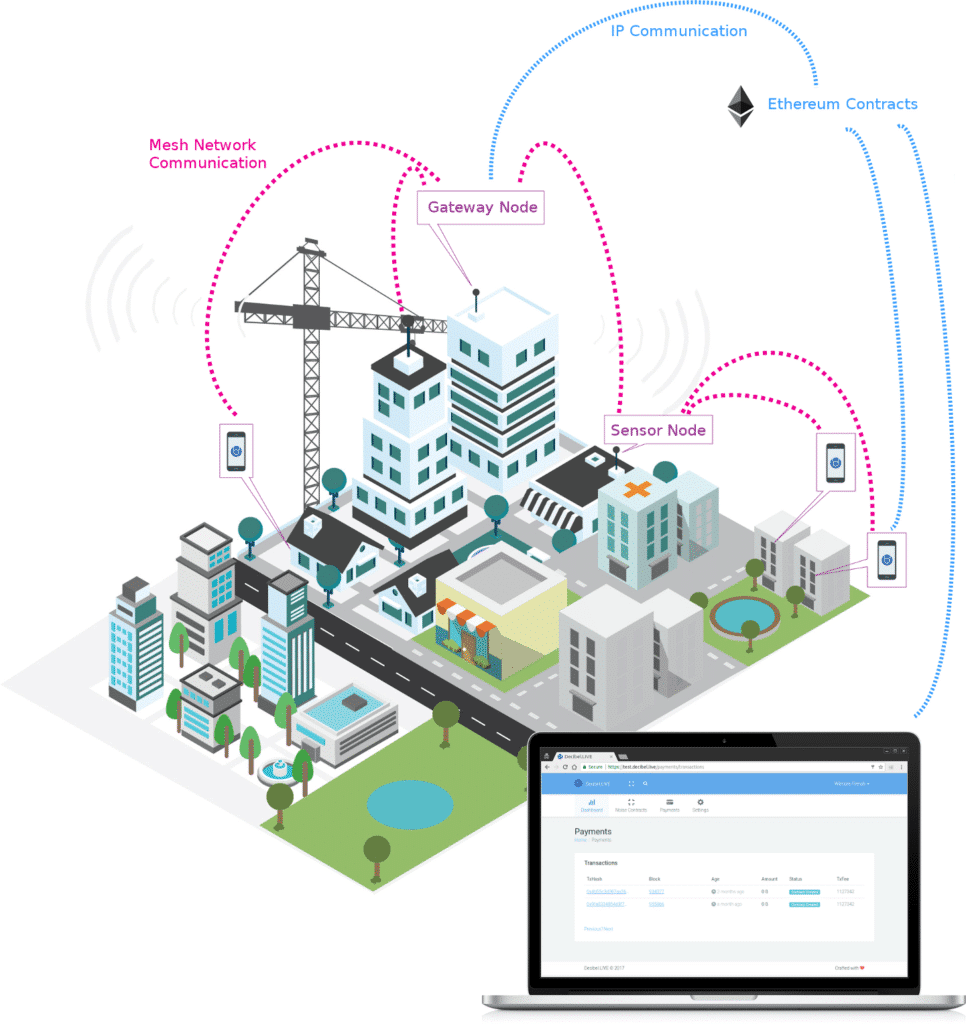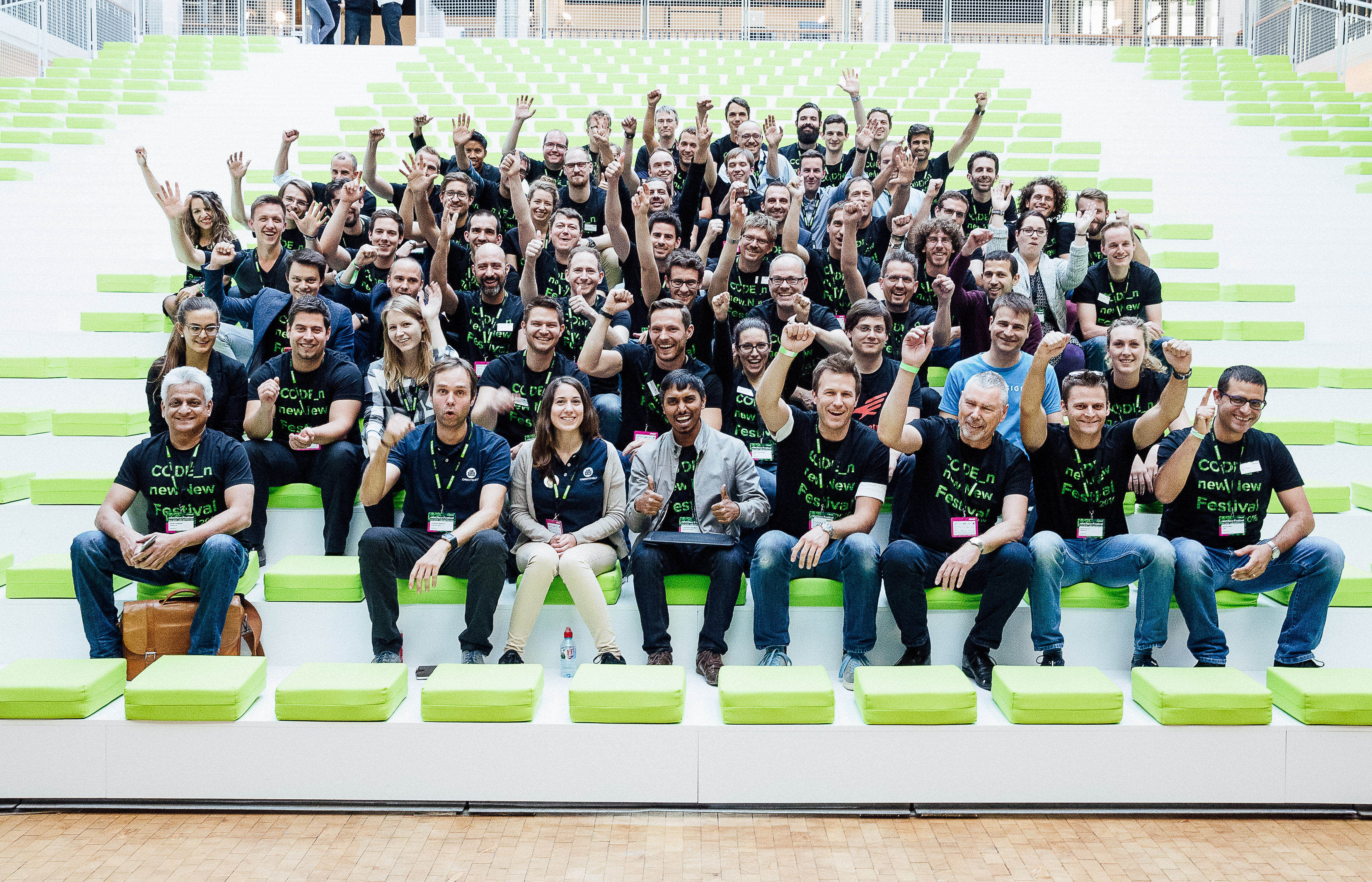MEET OUR CODE_N CONTEST FINALISTS 2018: Decibel.LIVE from the Netherlands
 Current statistics paint a dim view of environmental sustainability. With a considerable amount of people living in urban cities where incessant exposure to air pollutants and noise affects people’s quality of life, Decibel.LIVE transforms cities into a habitable and sustainable space. They develop sensors and software that monitor environmental pollution in real-time using smart contracts to ensure security and a fully decentralized communication. How does it work? Let Vijay Kandy, Co-founder and CEO of Decibel.LIVE introduce you to two seemingly mismatched fields – blockchain and environmental sensing.
Current statistics paint a dim view of environmental sustainability. With a considerable amount of people living in urban cities where incessant exposure to air pollutants and noise affects people’s quality of life, Decibel.LIVE transforms cities into a habitable and sustainable space. They develop sensors and software that monitor environmental pollution in real-time using smart contracts to ensure security and a fully decentralized communication. How does it work? Let Vijay Kandy, Co-founder and CEO of Decibel.LIVE introduce you to two seemingly mismatched fields – blockchain and environmental sensing.
Iulia: What is Decibel.LIVE all about?
Vijay: Decibel.LIVE helps cities monitor environmental pollution in real time using a connected network of sensors, providing irrefutable proof of data using the Ethereum blockchain. We manufacture sensors to monitor urban environmental pollution, which includes noise and vibration levels from construction and demolition sites, emissions of sulfur dioxide (SO2) and nitrogen oxides (NOX), VOCs, and fine particle (PM2.5) pollution.
In addition to capturing sensor levels on the blockchain, we use programs known as smart contracts that automatically trigger defined actions when certain limits are exceeded. Governments can define these limits and actions. For example, the owner of a site can be charged by enforcing penalties in real time.
Iulia: How did you come up with the idea?
Vijay: I live in Calgary, Canada, very close to Jasper National Park. Having spent lots of time in the park, I learned to respect nature and the animals with which we share this planet. Since my background is Computer Science, I wanted to use my skills to develop tools to protect the environment. After Ethereum was released, we realized the power of smart contracts, so we built some prototypes with Arduino and tested how we could measure human impacts on the environment.
 Iulia: What are you trying to solve?
Iulia: What are you trying to solve?
Vijay: Air and noise pollution do not know national frontiers. Noise and vibration from construction and demolition sites impact the quality of life of residents living in surrounding areas. Emissions of sulfur dioxide (SO2) and nitrogen oxides (NOX) can react in the atmosphere to form fine particle (PM2.5) pollution. Similarly, NOX emissions can react in the atmosphere with volatile organic compounds (VOCs) and sunlight to create ground-level ozone pollution. These pollutants can travel major distances affecting air quality and public health, both regionally and on a wider scale in the areas downwind.
How can we hold corporations accountable? How can citizens believe the authenticity of claims made by corporations regarding their impact on the environment? How can governments ensure that corporations are complying with the laws?
We are creating a platform to address these issues.
Iulia: In what countries is your application already in use? How are you collaborating with local authorities and businesses?
Vijay: We are currently running pilot projects in the Netherlands. We are also working with an NGO in Congo to monitor air quality at a mine.
In the Netherlands, we have focused on an industrial area where residents have been complaining about emissions from a nearby factory. The local authority doesn’t have the means to measure the impact and enforce regulations. Nearby residents are monitoring gas levels by using their own devices, which the factory claims are not calibrated. We are working with the authorities to capture emission levels that all parties – the factory, citizens, and the municipality – will be able to agree on. Smart contracts and the blockchain are creating a platform of trust, bringing all three groups of people together.
Thank you very much for the interview, Vijay!
Meet Decibel.LIVE at the new.New Festival 2018 this fall, in Stuttgart!






Write a comment